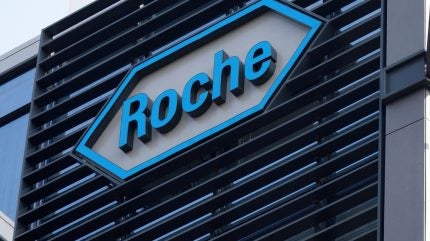
Roche’s CEO Thomas Schinecker said the drugmaker is continuing talks with the US government over drug pricing reforms, as President Donald Trump looks to add to recent deals with big pharma companies.
Earlier this year, the Trump administration announced the Most Favored Nation (MFN) executive order to tie drug prices in the US to other developed countries. The policy is part of Trump’s wider aim to overhaul drug pricing in the country and offer patients cheaper options.

Discover B2B Marketing That Performs
Combine business intelligence and editorial excellence to reach engaged professionals across 36 leading media platforms.
“We’ve been in discussions with the US Government for most of this year. It’s not something that has only happened in the last couple of weeks. We are in constant change with the government,” said Schinecker during a Q3 conference call on 23 October.
Pfizer and AstraZeneca became the first major pharma companies to sign deals with Trump amid pricing pressures from the president. According to the deals, the drugmakers will offer certain medications at steep discounts via the US government’s direct-to-consumer (DTC) platform, TrumpRx.gov, which is set to launch in January 2026.
Just last week, Roche announced it would sell its flu pill Xofluza (baloxavir marboxil) at a discounted price of $50 to cash-paying US patients.
The Swiss big pharma company, which has outlaid $50bn to bolster drug manufacturing in the US over the next five years, saw its Q3 results affected by international currencies.

US Tariffs are shifting - will you react or anticipate?
Don’t let policy changes catch you off guard. Stay proactive with real-time data and expert analysis.
By GlobalDataRoche achieved total sales of Sfr45.9bn ($57.6bn) for the first nine months of 2025, representing growth of 7%. Sales in the company’s pharmaceuticals division increased by 9%, contributing Sfr35.6bn in revenue.
However, sales were adversely impacted by the appreciation of the Swiss franc against most currencies, including the US dollar. In Swiss francs, total sales growth was 2% while pharma growth was 4%.
Shares in Roche opened 2.5% down at SFr273.4 at market open on 23 October compared to prior market close. The company has a market cap of SFr215.9bn.
“The US dollar has further weakened against the Swiss franc. The Euro has shown some stability but [the impact] has certainly been dominated by the US dollar,” said Alan Hippe, Roche’s chief financial and information officer.
Despite the sales value being weighed down by the US dollar, Roche still upped its 2025 earnings outlook.
Roche said it now expects a high-single to low-double-digit percentage rise in earnings per share, compared with a previous high-single-digit target.
Plugging gap from exclusivity loss
The big pharma company is still dealing with the loss of exclusivity for several of its blockbuster drugs. This includes cancer drug Avastin (bevacizumab), which generated peak sales of around $7bn before losing exclusivity in 2019.
The company is also bracing itself for erosion to its allergy treatment Xolair (omalizumab). Xolair was one of the growth drivers highlighted by Roche executives in the conference call – the drug hit SFr2.2bn in total sales for the first nine months of 2025.
Roche’s top-selling drug continues to be its multiple sclerosis drug Ocrevus (ocrelizumab), generating SFr5.2bn in the period.
Roche Pharmaceuticals CEO Teresa Graham said: “Based on strong performance, we have updated the full-year outlook for Xolair. We now expect growth greater than 30% in 2025, up from the 20% estimate that we shared the end of H1. We expect a first biosimilar launch for Xolair at the end of 2026.”
Roche has adopted an aggressive financial stance to boost its internal portfolio in order to replace the SFr5.8bn in revenue that is forecast to be lost amid competition from generics and biosimilars by 2029.
Deals include the $2.4bn acquisition agreement for 89bio, a move that sees Roche target the lucrative metabolic dysfunction-associated steatohepatitis (MASH) market. Roche also entered a $5.3bn partnership with Zealand Pharma, with the two companies working together to advance obesity candidate petrelintide.
China diagnostic sales void continues
Roche reported a 1% sales increase in its diagnostics division. While this translated to a negative 4% growth in Swiss francs, the company said that demand for pathology solutions and molecular diagnostics “more than offset” the impact of healthcare pricing reforms in China.
The weak demand in China has been affecting Roche since the start of the year, with the company posting flat diagnostics sales in Q1 2025.
The Chinese Government has been busy transforming how medical devices and services are bought in the country. Historically, medtech giants were attracted to the Chinese market because of high prices paid for their products. However, recent pricing reforms via procurement programmes and insurance frameworks have changed the landscape. This is in tandem with an anti-corruption campaign that has intensified efforts to crack down on volume-based procurement (VBP).
Roche Diagnostics CEO Matt Sause said: “China sales have declined by 27%. This impact is expected to continue over the remainder of 2025.
“Given that we anticipate diminished but continuing headwinds in China for 2026, we would set our ambition for 2026 as mid-single digits.”




